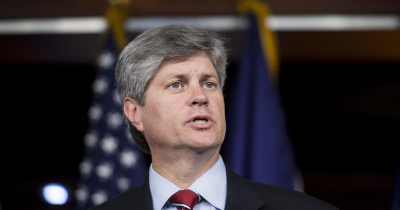
Fiery Interruption: Sriracha Sensation Pauses Production – Unveiling the Reasons Behind
Monday, 13 May 2024

Unveiling Retirement Realities: Bridging the Gulf Between Plans and Circumstances
In the American workforce psyche, retirement at 65 stands as a beacon of tradition and expectation. Yet, the harsh truths of life often disrupt these aspirations, leading to an earlier exit from the workforce for many—often against their wishes. Recent research reveals a stark revelation: the median retirement age in the United States is not 65, but rather 62, painting a picture of a workforce retiring three years earlier than anticipated. This insight, drawn from a study by the Employee Benefit Research Institute (EBRI), highlights the gaping disparity between retirement ambitions and the harsh realities on the ground.
A prevailing notion, championed by policymakers and business magnates alike, advocates for prolonging careers to bolster retirement nest eggs. This strategy, they argue, offers a remedy for the glaring deficit in retirement savings plaguing millions of workers. However, the EBRI's findings cast a sobering shadow over this proposal, exposing a harsh truth: many Americans find themselves involuntarily thrust into retirement prematurely. Even for those desiring to extend their working years, the feasibility remains a daunting challenge, as Craig Copeland, EBRI's director of wealth benefits research, attests. The belief that working longer universally resolves retirement woes proves overly simplistic, with myriad obstacles barring its realization.
The report's revelations are striking: seven out of ten retirees bid farewell to the workforce before reaching the age of 65. Moreover, nearly half of retirees depart earlier than planned, with a majority citing factors beyond their control. Health ailments or disabilities account for a third of premature retirements, underscoring the vulnerability of aging workers to unforeseen circumstances. Contrary to popular belief, only a minority cease working early due to financial preparedness—a mere two out of five retirees. Within this chasm between anticipation and actuality lies the seeds of potential turmoil, as individuals forced into early retirement face the grim prospect of inadequate savings.
Indeed, the repercussions loom large. Those envisioning retirement at 65, but confronted with early exits, risk confronting a financial abyss. The data already paints a grim picture, with a recent AARP study revealing that one in five Americans over 50 possess no retirement savings whatsoever. As the gap widens between retirement aspirations and the harsh realities of life, the imperative to address these disparities grows ever more urgent.
Diving Deeper into Retirement Realities: Navigating Financial Uncertainty and Optimism
Delving into the intricate tapestry of retirement planning, a recent study by the Employee Benefit Research Institute (EBRI) sheds light on the financial landscapes and aspirations of American workers and retirees. Surveying 1,255 workers and 1,266 retirees in January, the findings offer a revealing glimpse into the financial preparedness—or lack thereof—amongst the populace.
Starkly, only half of the surveyed workers have taken the crucial step of calculating their retirement needs, unveiling a concerning gap in financial foresight. Among those who have delved into the intricacies of retirement finances, a significant portion—approximately one-third—believe they'll require a substantial nest egg of at least $1.5 million. This figure resonates with broader research, which suggests that the average worker perceives $1.46 million as the threshold for a comfortable retirement. However, stark disparities emerge when juxtaposing these aspirations with current realities. Astonishingly, about a third of workers presently possess savings and investments totaling less than $50,000—a stark juxtaposition to their lofty retirement aspirations.
The allure of the "10 times salary" rule of thumb appears to shape these ambitious retirement goals, as Craig Copeland, EBRI's wealth benefits research director, elucidates. Yet, while these targets may accurately reflect individuals' perceived financial needs, the feasibility of achieving such sums through savings remains a formidable challenge.
Simultaneously, a prevailing reliance on Social Security as a retirement income source emerges from the study, despite looming concerns over its future sustainability. Set to confront a funding shortfall within a decade, the specter of a potential 20% benefits cut by 2033 looms large—a disconcerting prospect for retirees with meager savings.
However, amidst these financial uncertainties, a prevailing sense of optimism pervades among current retirees, with two-thirds affirming that they are indeed living the retirement they had envisioned. Yet, as Copeland observes, the journey to this idyllic retirement lifestyle often traverses through stressful terrain.
In this intricate dance between financial pragmatism and hopeful optimism, the quest for a secure retirement remains a multifaceted journey—one marked by foresight, resilience, and adaptability.
In conclusion, the EBRI study serves as a sobering reminder of the complexities inherent in retirement planning, highlighting both the aspirations and stark realities faced by American workers and retirees alike. While many harbor ambitious financial goals for their golden years, the gap between these aspirations and current savings levels unveils a pressing need for greater financial literacy and preparedness. Moreover, the looming uncertainties surrounding the future of Social Security underscore the imperative for individuals to take proactive steps in securing their retirement futures.
Despite these challenges, a prevailing sense of optimism among current retirees offers a beacon of hope, demonstrating that with prudent planning and resilience, individuals can indeed achieve the retirement lifestyle they envision. As we navigate the turbulent waters of financial uncertainty, it becomes increasingly clear that the journey towards a secure retirement demands not only financial foresight but also adaptability and perseverance. With informed decision-making and a steadfast commitment to long-term financial wellness, individuals can chart a course towards a fulfilling and sustainable retirement.




